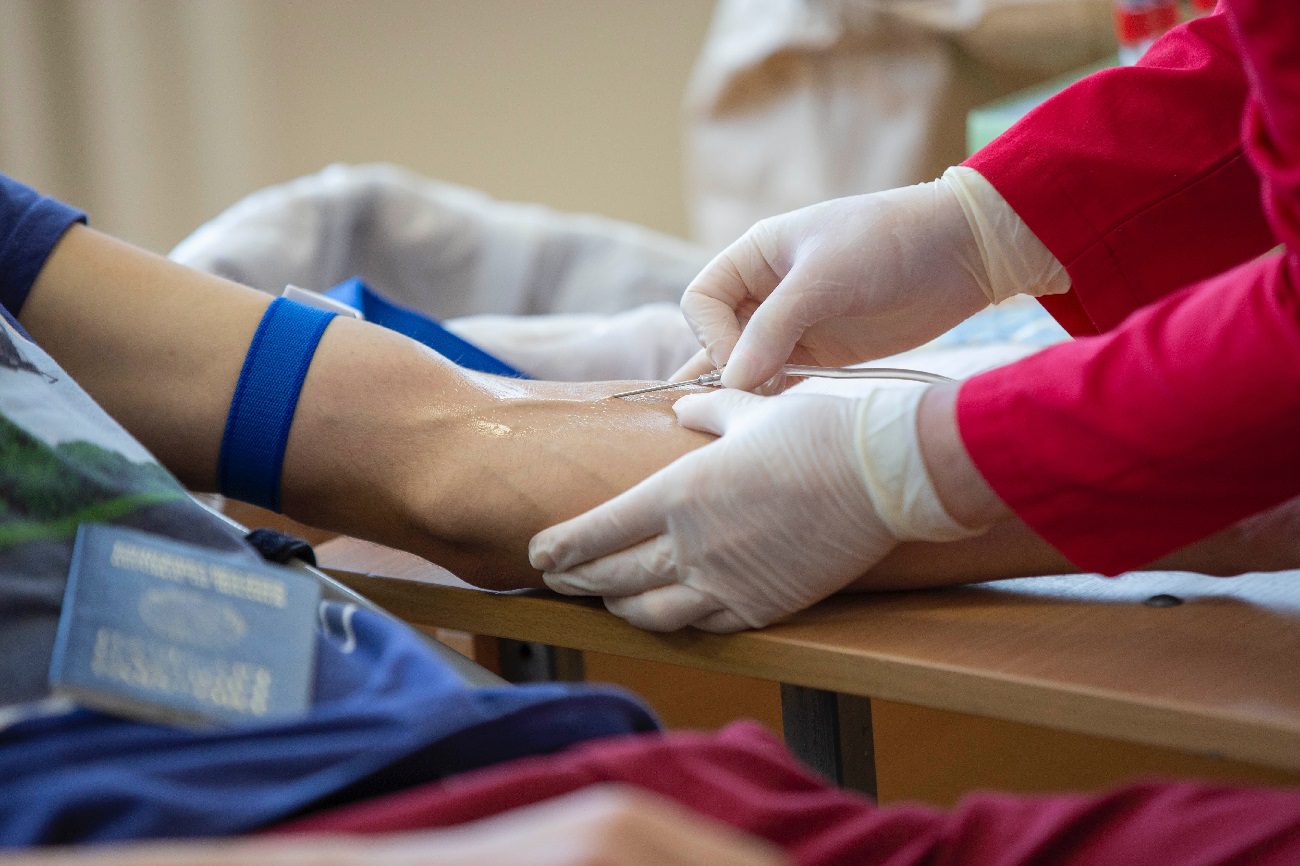Canada Intending Organ Donors Visa
You may be eligible for a Canada organ donors visa if you want to donate your organ to a Canadian resident or citizen. Another route to donate your organ in case of inadmissibility is to obtain a Temporary Resident Visa.
Find out what route would work best for your situation by speaking with one of our trusted legal advisers today. Call us at 03334149244 or contact us online today. We’re here to help you in person, via the phone, or online.
Read our 1001 reviews
Request a call back from our immigration experts
Canada Visa for Intending Donors Overview
Immigration, Refugees and Citizenship Canada (IRCC) allows foreigners to enter Canada not only for tourism and visitations but also for lifesaving reasons like organ donations for Canadian citizens or permanent residents in need through the Intending Organ Donors Visa. Applicants who enter the country via this route are allowed to only stay in Canada temporarily. They are not allowed to work or receive Canadian benefits during their stay.
The Intending Organ Donors Visa is a type of Temporary Resident Visa (TVR) where the donor is allowed to reside in Canada for a certain period. During that timeframe, they are not permitted to benefit from social security and other provisions meant for citizens and permanent residents. The potential organ donor only resides in Canada for a short time, usually 6 months or less. Also, the applicant is not allowed to try and get Canadian citizenship or get benefits such as social security or health insurance.
This visa is a Temporary Resident Visa that allows the intending organ donors to visit Canada for some time. During this period, the person is not permitted to attempt to access social security and public benefits exclusively available to citizens and permanent residents.
Since the mission to donate a human organ is likely to result in saving lives – and the waitlist for organ donors and organ transplants continues to grow – the organ donor visa bridges the gap in global supply between those who are willing to donate human organs and those who need to receive them in Canada.
The Intending Organ Donors Visa allows you to visit Canada legitimately to donate an organ to a sick person who needs it. You will remain in the hospital for the duration of your recovery after which you must return to your home country. If you experience any health issues during this time that is not related to the organ transplant, your private medical insurance coverage is expected to cater to it.

What Is the Intending Organ Donors Visa?
All over the world, many sick people need organ transplantation to stay alive or function optimally. Many countries try to fast-track the likelihood of getting an organ graft for their citizens and they facilitate organ donations by granting donors access to their country when they consent to donate their organs to their citizens. The Canadian authorities are no exception and that is why they created the visa for intending organ donors.
Canadian Organ Donor Visa Eligibility Criteria
The process to obtain a visa for intending organ donors has certain requirements that must be met which exist in two major criteria under IRCC Procedures and Guides:
- General requirements for standard Canada Visa.
- The specific requirement for Canada Organ Donors Visa.
General Requirements for Standard Canadian Visa
Meeting the general requirements of a standard Canadian visa is one of the necessary eligibility criteria to apply for an intending organ donor visa. Generally, anyone applying for a temporary visa of any kind has to assure the Canadian Government that their stay in the country is temporary. A foreign organ donor is however allowed to remain in Canada if circumstances regarding their post-surgery healthcare demand it and it has been established that the healthcare facilities back home would be inadequate. The medical costs would be offset by the recipient’s private health insurance in this case, or the institution responsible for the transplant.
Here are the conditions a TRV applicant must meet to be eligible for consideration:
- Be 18 years old or above to apply.
- Have a valid passport of your native country that has at least 2 blank pages.
- No criminal history.
- Willing and able to pay visa application fees and visa processing fees.
- Submit copies of your current immigration status in Canada or a different country.
- Proof of sufficient funds for your stay in Canada.
- Willingness to attend an interview or provide biometric information if required.
- Willingness to undertake a medical examination.
- Proof that residence in Canada would be temporary.
- Proof that you do not intend to work or study in Canada.

Specific Requirement for Canadian Intending Organ Donors Visa
There are specific requirements regarding the Canadian Organ Donor Visa for potential organ donors that are foreign nationals. Here are the key conditions:
There must be proof of medical compatibility between the donor applicant and the recipient.
This proof is through a letter written by a Canadian transplant specialist recognized by a transplant center. The letterhead of such a letter should belong to the specialist or a recognized transplant center. The letter content should affirm the following:
- There must be proof that there is an existing recipient for the organ.
- There must be proof that the applicant has undergone medical testing and is cleared to be a potential donor.
- There must be proof that the recognized transplant center will perform the transplant surgery and treat the applicant if they are approved as a donor.
- There must be proof that the surgery, the applicant’s medical assessment, and hospital stay costs related to the organ donation are covered by private health insurance or an institution that facilitates organ donations.
- There must be proof that further medical testing may be performed in Canada. (Without the letter from a Canadian transplant specialist affiliated with the necessary body, visa officials may withhold Canada visas for intending organ donors).
There must be proof of satisfactory financial arrangements.
While the letter from the home-based transplant specialist should indicate this, it is left to the visa officials to ensure that living expenses, accommodation, and other medical pre-operative procedures costs that are not directly related to the organ donation are secured. Ordinarily, these should be covered by the recipient’s health insurance. However, the aspiring donor also needs to provide proof of private medical insurance to visa officers so that medical conditions that are not related to the transplant process would be covered.
There must be proof that organ trafficking is not happening.
The recipient must be donating their organ willingly and not selling it. To sell in this sense is not only the exchange of body organs for financial gains but also includes non-monetary inducements. visa officials conduct a thorough examination to ensure that the agreement between the donor and recipient is not illegal organ harvesting and these are the factors they consider:
- The relationship between the donor and recipient.
- How the applicant came to become the potential donor.
- The social and economic conditions of both the donor and recipient.
- The medical risks and impact of the surgery on the donor and their understanding of these.
- Local happenings regarding organ donation.
- The benefits accruable to the donor based on their organ donation.
- The donor’s consistency (is there a possibility they might change their mind once they arrive in Canada?).

Establishing Bona Fide Assessment
An applicant may fall short of the application process for an intending organ donor visa, but because organ donation can be a life or death issue, visa officers may apply discretion on this basis to provide some form of waiver by issuing a temporary resident permit (TRP). When the life of a Canadian citizen or permanent resident is on the line, visa officials may consider some humanitarian factors and judge that they outweigh the issues that led to the inadmissibility of an applicant. However, this is not normalized to protect the national interest of Canada and prevent the encouragement of illegal sales of human organs.
Applying for an Intending Organ Donors Visa
Here are the steps to apply to donate an organ to a Canadian citizen or permanent resident:
Verify your eligibility to apply for an Intending Organ Donor Visa.
Once you settle for a living organ donation, then you need to start the application process to verify your eligibility. On the Canadian Government’s official website, follow these steps to get started:
- Click on the Immigration tab.
- Click on Visit.
- Click on “Find out if you need a visa”.
- Answer the questions in the questionnaire. If the system notifies you that you qualify to apply, it will provide a reference code and the instructions you need to follow.
- Create an account with the reference code. You can create this account with your bank details or the
- The reference code that was given to you after completing the eligibility test will serve to open an account on the site. You can do it through your bank details or with the GCKey that the Canadian Government created.
Fill out and submit the application form.
The two main forms are as follows:
- Form IMM 5257, Application for Temporary Resident.
- Form IMM 5707, Family Information Form.
Where applicable, you may need to fill these other forms:
- Form IMM 5409, Statutory Declaration of Common-law Union.
- Form IMM 5476, Use of a Representative.
- Form IMM 5475, Authority to release personal information to a designated individual.
You may also need to submit the following additional documents:
- A valid passport.
- Your travel history.
- Bank or other financial statements.
- A travel itinerary.
- A Declaration Letter from you to the Government of Canada.
- Two (2) photos taken according to the Canada Photo Requirements.
- Your employment or education status.
- Letter from your employer to prove your commitment back home.
- The immigration status of the organ recipient in Canada.
Collate the required documents for a Canadian Organ donor visa.
Wait till it is completed and provide information if requested. All documents must be written in English or French and authenticated by a certified translator.
Send your passport for stamping.
If your intending organ donor visa is approved, the Canadian Consulate will notify you after the interview or through email. You then need to send your passport for processing and sealing. If you do this via mail, you will incur additional expenses. If you got the feedback from the embassy, you can simply deliver your passport for processing and pay the fee for the visa application. In such a case, you are likely to receive the visa on the same day.
Fees for Canadian Visa Intending Organ Donors
You can submit your application once you’ve been able to submit your documents and supporting documents. Then it is time to pay for the application to be completed. The Intending organ donor visa costs CAN$100. There will be a CAN$85 charge for additional costs if you must provide biometric information. If the application is approved, the passport processing cost is CAN$45. Here are variations of the application fee:
- Partner Application Fee CAD 1040.
- Dependents Application Fee CAD 150-550.
Processing Time for Canadian Visa Intending Organ Donors
The Canadian Consulate usually takes from 1 week to 5 or 6 weeks to process the Canadian intending organ donors visa. They may request additional information within that time. They tend to get back early if their workload is light and you provided the necessary documents upfront. The processing time may be longer if they asked for supporting documents. It is advisable to kick start the process immediately after you decide to undergo an organ transplant for a Canadian citizen or resident.
Canadian Temporary Resident Visa Validity
An Intending Organ Donors Visa is valid for at most 6 months. You may obtain the visa for a longer time frame, but you are not allowed to exceed 6 months for your stay on a donor visa. If you are not fully recovered within that time, you can notify the Consulate of your intention to stay longer with sufficient proof to support your request. While staying as an organ donor in Canada, you are not permitted to apply for Canadian citizenship or try to obtain Canadian-issued documents. Since specific Canadian benefits are for citizens and permanent residents, you are not eligible for them either. Your operations in the country at that time are to provide for the organ recipient after medical tests have verified your ability to do so, recover fully and return to your home country.
Can I Bring My Family to Canada With the Organ Donors Visa?
Because this Temporary Resident Visa is strictly for organ donation, it does not cover your family coming over together with you. Under Canadian law, your family refers to your spouse, common-law partner, and minor children. They can apply for a visitor visa to keep you company, and you can submit your applications as one family. But they won’t gain entry under your Temporary Resident Visa.
You can visit Canada to donate your organ to a Canadian citizen or permanent resident once organ compatibility has been established and all other eligibility requirements have been met. However, no matter the period on your visa, you are only allowed to stay in the country for 6 months. If you have any reason to remain in Canada beyond the 6-month timeframe, especially because you are not fully recovered from the donation-related health challenges, contact the Consulate to present your case.
How Can IAS Help?
You need to ensure your visit to Canada to donate an organ to a citizen or permanent resident is done safely and legally. No matter which part of the world you are coming from, we are on the ground to prepare you for a hassle-free visa application process.
Our team of experienced immigration officers and legal experts is here to provide personalized help that suits your specific situation. Call us at 03334149244 or contact us online today.
Table of Contents
Table of Contents will appear here.Legal Disclaimer
The information provided is for general informational purposes only and does not constitute legal advice. While we make every effort to ensure accuracy, the law may change, and the information may not reflect the most current legal developments. No warranty is given regarding the accuracy or completeness of the information, and we do not accept liability in such cases. We recommend consulting with a qualified lawyer at Immigration Advice Service before making any decisions based on the content provided.
What our clients are saying
How our UK Immigration Lawyers can help
At the Immigration Advice Service our lawyers specialise in a wide range of UK visas, nationality and asylum applications and have represented clients in various successful complex and high-profile cases.















